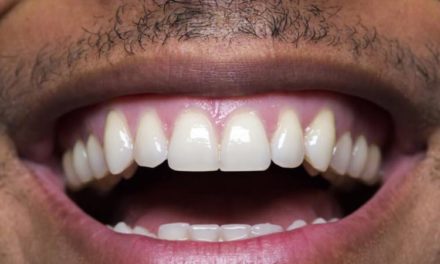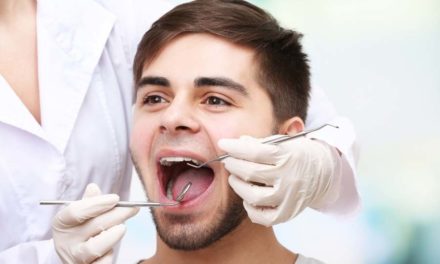Teeth whitening has become a popular cosmetic procedure in recent years. Many seek this treatment to achieve a brighter, more youthful-looking smile. However, some may wonder if teeth whitening is safe and if it can cause any damage to their teeth or gums.
The answer to whether teeth whitening is safe is a complex yes or no. While teeth whitening is generally considered safe, there are potential risks and side effects.
Understanding the different teeth whitening methods, potential risks, and how to minimize them is important. This article will explore the safety of teeth whitening and provide information to help readers make an informed decision about whether or not to pursue this treatment.

Safety of Teeth Whitening Procedures
Teeth whitening is a cosmetic dental procedure that has become increasingly popular recently. While it is generally considered safe, patients should be aware of some potential risks and side effects before undergoing the treatment.
The most common side effect of teeth whitening is tooth sensitivity. This can occur during and after the treatment and may last several days or weeks. In some cases, patients may also experience gum irritation or discomfort.
It is important to note that teeth whitening procedures should only be performed by a licensed dental professional. Over-the-counter whitening products may contain harmful chemicals or abrasive agents that can damage the teeth and gums.
Patients with pre-existing dental conditions, such as tooth decay or gum disease, should consult their dentist before undergoing whitening treatment. Additionally, pregnant or nursing women should avoid teeth whitening procedures, as the effects of the chemicals on fetal development and breast milk are not yet fully understood.
Overall, while teeth whitening is generally considered safe, it is important for patients to be aware of the potential risks and side effects and to consult with a licensed dental professional before undergoing the treatment.
Potential Risks and Side Effects
Teeth whitening is considered safe, but it carries potential risks and side effects like any medical procedure. Before undergoing teeth whitening treatment, you must be aware of these risks and discuss them with your dentist.
Tooth Sensitivity
One of the most common side effects of teeth whitening is tooth sensitivity. This occurs when the peroxide in the whitening solution penetrates the enamel and reaches the dentin layer, which contains nerve endings. This can cause temporary sensitivity to hot and cold temperatures and sweet and acidic foods.
Dentists may recommend using a lower peroxide concentration or shorter treatment times to minimize tooth sensitivity. They may also recommend using desensitizing toothpaste or gels before and after treatment.
Gum Irritation
Another potential side effect of teeth whitening is gum irritation. This can occur if the whitening solution comes into contact with the gums, causing them to become red, swollen, and tender. In severe cases, the gums may even bleed.
To prevent gum irritation, dentists typically use a protective gel or rubber shield to cover the gums during whitening. Patients should also avoid using whitening products at home without consulting their dentist.
In rare cases, teeth whitening may also cause other side effects such as throat irritation, nausea, and vomiting. However, these side effects are typically mild and resolve independently within a few days.
While teeth whitening is generally safe, knowing the potential risks and side effects is important. Discussing these with your dentist and following their recommendations can minimize your risk of experiencing any negative effects from teeth whitening.
Precautions and Recommendations
Professional Supervision
Teeth whitening procedures should always be performed under professional supervision. Dentists are trained to assess the condition of the teeth and gums before recommending any whitening treatment. They can also monitor the progress of the treatment and adjust it as necessary to avoid any adverse effects.
It is important to note that not all stains can be removed by teeth whitening, and some may require other treatments such as veneers or crowns. Therefore, it is essential to consult a dentist before undergoing any whitening treatment.
Home Whitening Kits
Home whitening kits can be an effective and convenient way to whiten teeth, but they should also be used cautiously. It is important to follow the instructions carefully and stay within the recommended usage time or amount of product.
Some people may experience sensitivity or irritation of the gums or teeth after using home whitening kits. If this occurs, the treatment should be stopped immediately, and a dentist should be consulted.
It is also important to note that not all home whitening kits are created equal. Some may contain harmful ingredients or have ineffective formulations. Therefore, it is important to research and choose a reputable brand approved by dental professionals.
In summary, teeth whitening can be a safe and effective way to improve the appearance of teeth. However, it should always be done with professional supervision or caution when using home whitening kits.
The Role of Dental Health
Dental health plays a crucial role in the safety and effectiveness of teeth whitening treatments. Before undergoing any teeth whitening procedure, it is important to have a comprehensive dental check-up to ensure no underlying dental issues that may compromise the treatment outcome.
One of the most common dental issues that can affect the outcome of teeth whitening is tooth sensitivity. Individuals with sensitive teeth may experience discomfort or pain during the whitening process. Therefore, addressing any tooth sensitivity issues before undergoing teeth whitening treatment is important.
Furthermore, individuals with gum disease or other dental problems may not be good candidates for teeth whitening. In such cases, it is important to address these dental issues before considering any teeth whitening treatment.
It is also important to note that teeth whitening treatments may not be effective for all types of tooth discoloration. For example, teeth discolored due to trauma or certain medications may not respond well to teeth whitening treatments.
Maintaining good dental health is crucial to the safety and effectiveness of teeth whitening treatments. Individuals should consult with their dentist before undergoing teeth whitening treatment to ensure they are good candidates and address any underlying dental issues.
Conclusion
In conclusion, teeth whitening is generally considered a safe cosmetic procedure by a qualified dental professional. While there may be some mild side effects, such as temporary tooth sensitivity or gum irritation, these are usually short-lived and can be managed with proper care and attention.
Not all teeth whitening products are created equal, and some over-the-counter products may contain harmful chemicals that can damage the teeth and gums. Therefore, it is recommended to always consult with a dental professional before undergoing any teeth whitening procedure.















